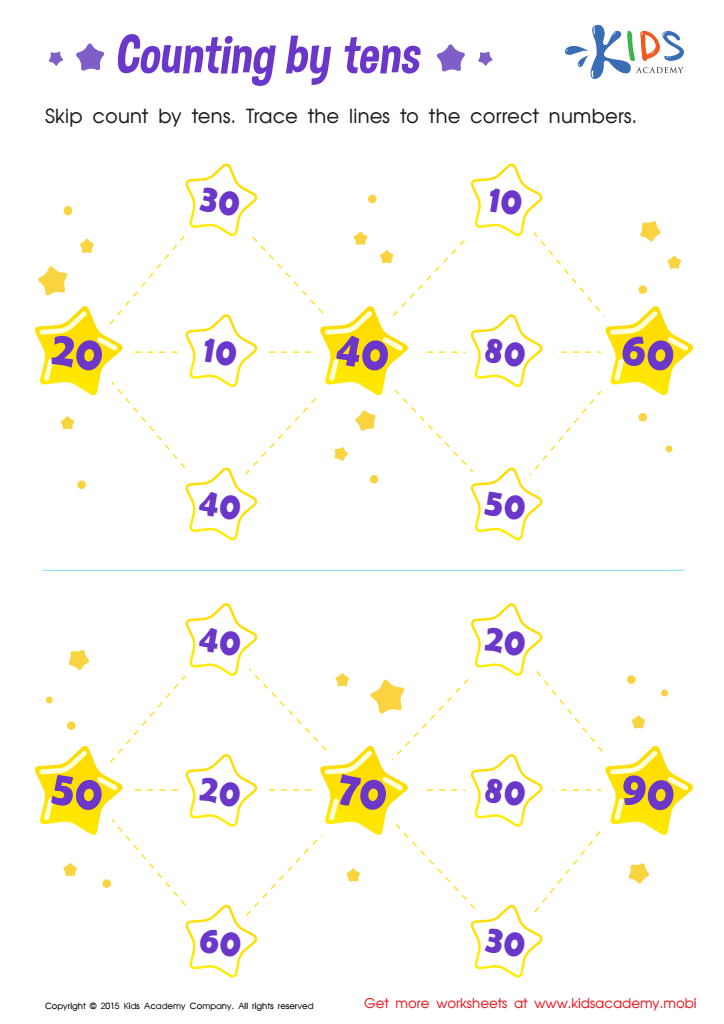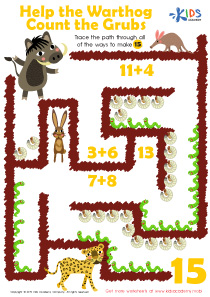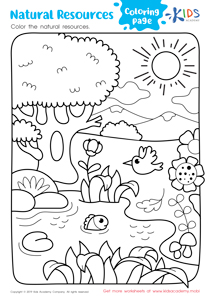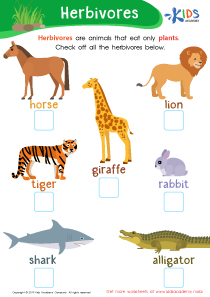Normal Difficulty Skip Counting Worksheets for Kindergarten
1 filtered results
-
From - To
Free Skip Counting Worksheets For Kindergarten
Our Normal Difficulty Free Skip Counting Worksheets are perfect for Kindergarteners learning to count. Our worksheets are completely free and not only provide an engaging way to learn counting, but also make learning enjoyable. Skip counting is a great way for kids to practice counting in blocks from 3 to 30 and our kids friendly Free Skip Counting Worksheets make it easy and fun. Each worksheet is accompanied by colorful images and large capacity numbers which are easily distinguishable, making it enjoyable for kids to work on mastering counting. With our Free Skip Counting Worksheets, your kids will soon be able to practice counting up to 30 without difficulty. Let them develop their counting and number recognition skills with our Free Skip Counting Worksheets and give them a head start in learning the basics of math.


Learn Dozens: Counting by Tens Printable
The Benefits of Free Skip Counting Worksheets for Kindergarteners
Free Skip Counting Worksheets are an incredibly useful tool for teaching young learners the fundamentals of arithmetic. In today’s world, math is essential for students to thrive and develop the skills necessary for problem-solving, critical thinking and analysis. Skip preschool counting worksheets are especially beneficial for Kindergarteners as they help build a strong foundation to prepare them for more advanced math courses in the future.
Skip preschool counting worksheets are particularly helpful as they provide a fun and engaging way to learn counting in jumps of various intervals. For example, in a Free Skip Counting Worksheet, a Kindergartener might be asked to count by twos, threes or fours. This method of learning helps students to build their understanding of basic counting patterns and the ability to recognize and articulate these patterns.
These worksheets are also highly adaptable which is ideal for Kindergarteners who are in the process of gradually developing and refining their skills. They can be tailored depending on the student’s level of understanding and ability to count. Additionally, the worksheets can be progressed to more advanced counting exercises as the student becomes more competent and comfortable.
In addition to counting patterns, skip counting worksheets can also incorporate other concepts such as introducing numbers in words and improving students’ ability to recognize and recall numerical symbols. Furthermore, because the worksheets are provided free of charge, they can be easily printed out and used as a regular routine activity to help maintain interest in learning through repetition.
For Kindergarteners, Free Skip Counting Worksheets are an invaluable learning tool. They are useful for helping students build a strong understanding of basic counting patterns and improving numerical skills such as recognizing and recalling numbers in words and symbols. Plus, they can be adapted to cater to the individual student’s level of understanding and progress, and are provided free of charge. All of this makes free skip counting worksheets one of the most efficient, versatile and cost-effective ways of helping young learners develop their math skills.

 Assign to the classroom
Assign to the classroom
.jpg)


%20(1).jpg)








